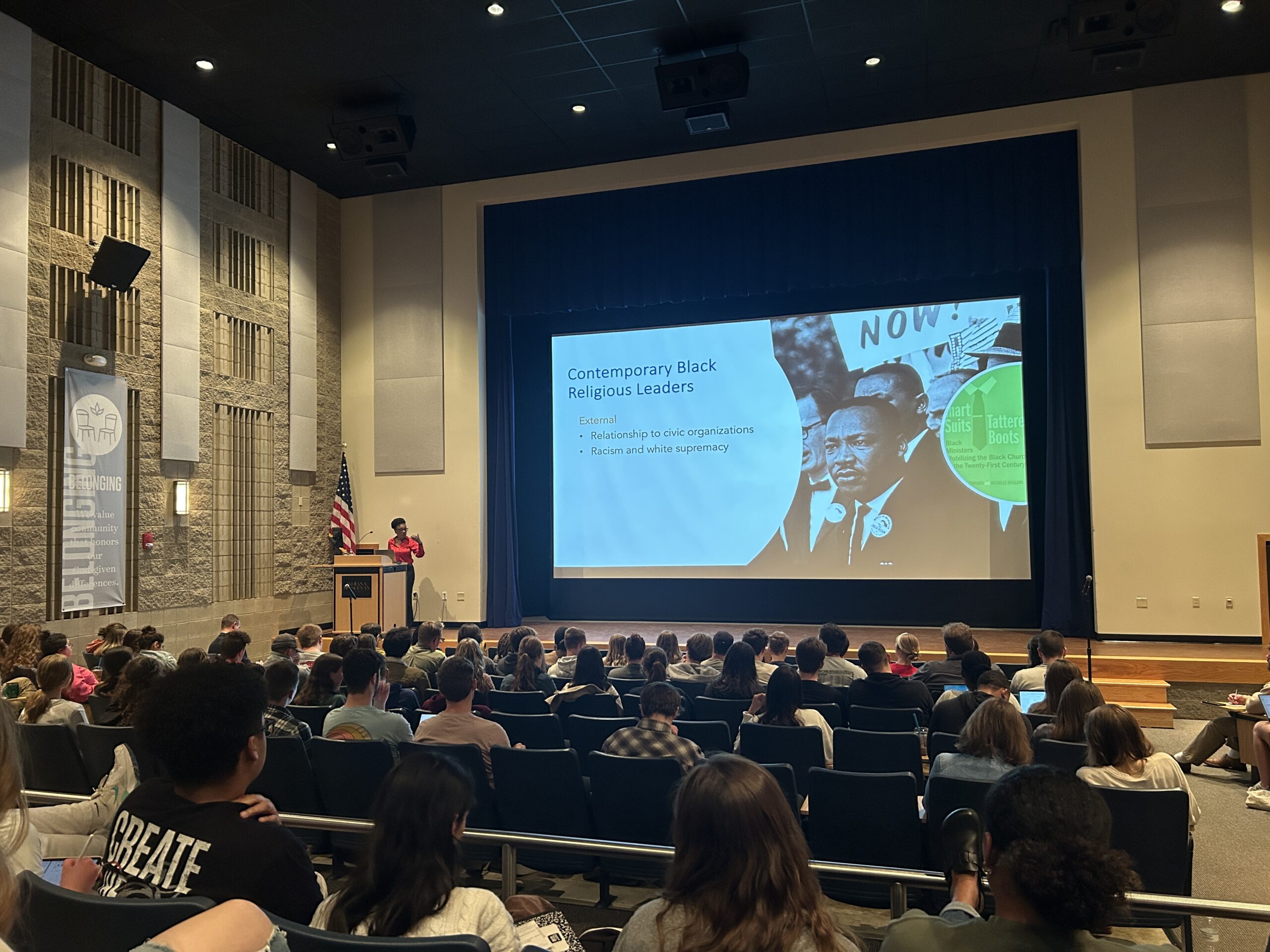Indiana Wesleyan University’s 2025 Luther Lee Lecture took place in the Barnes Student Center’s Globe Theatre on Tuesday, March 18.
Korie Little, a scholar and professor of sociology at The Ohio State University, spoke to the crowd of students and professors on the limits and opportunities of religious leaders and racial justice.
Little said religion plays a central role in how movements unfold in the United States, and highlighted that the most successful movements have been tied to religion.
“There is an opportunity for these leaders, and for us, to make a really important impact in the church today,” Little said.
Through the framework of her two books, “Estranged Pioneers” and “Smart Suits, Tattered Boots”, Little explored what it means to lead a multiracial church in a culture still wrestling with religious racial segregation.
“The arc of the moral universe is long, but it bends towards justice,” Little said. “Will we be a part of that bending?”
IWU’s John Wesley Honors College hosts the Luther Lee Lecture annually, seeing it as a vital part of the Wesleyan roots. Rusty Hawkins, the dean of the Honors College, said the lecture holds significance.
“The Wesleyan denomination that this school belongs to has in its history this DNA of being attentive to social divisions for the purpose of bringing about social holiness,” Hawkins said.
Hawkins said that over time, that attention to social holiness has faded as scholars, such as Luther Lee, have faded from the scene. This is where the Luther Lee Lecture comes in, as it was designed to bring that attention back into the light.
“The John Wesley Honors College here at Indiana Wesleyan instituted the Luther Lee series as a way to try to breathe life back into that dormant strand of our Wesleyan DNA,” Hawkins said.
The lecture provides an opportunity for students to take part in reviving the fundamentals of the Wesleyan tradition. Freshman Natalie Truex said the lecture taught her the importance of acknowledging the gospel in this process.
“We are all religious leaders, meaning we all have a part to play in social justice by acknowledging the gospel and what we believe is the truth, and that’s Jesus Christ,” Truex said.
Truex also said the lecture was important for people to understand, as it was an opportunity for asking deeper-level questions.
“This is important for other people to understand, because it’s not talked about a lot, and this was a great opportunity to comprehend these hard topics and be able to ask questions about religious leaders in racial justice,” Truex said.


